Reviled warlord Yevgeny Prigozhin’s demise sparks cautious optimism in Kyiv
Journeying into Ukraine, our reporter meets Ukrainians processing the apparent Kremlin assassination of Wagner leader Yevgeny Prigozhin | WATCH
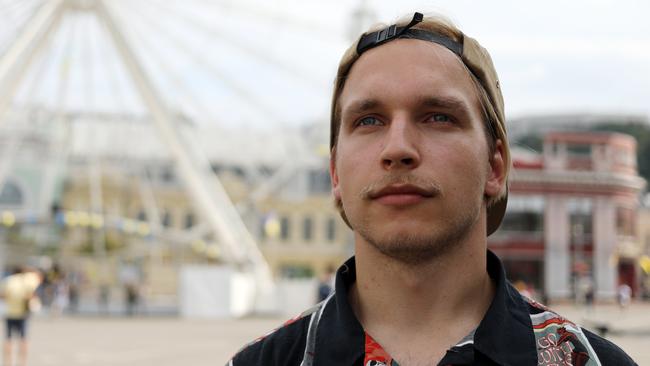
It’s after sunset in the Polish border town of Przemysl and at the town’s train station, a mother and her teenage son join the queue beside me for final immigration checks.
We’re about to board the overnight sleeper train to Ukraine, and the woman and boy are flustered, rushing with their bags, having just a few hours earlier managed to secure tickets for the train, often sold out a week in advance.
I tell her the news which had broken in the previous half-hour: the feared leader of the Wagner mercenary army, Yevgeny Prighozin, has reportedly been killed in a plane crash in Russia.
Her eyes light up and a huge beaming smile takes over her face.
She begins – literally – jumping for joy, clapping and laughing.
But when we get to Kyiv, over 11 hours later, there’s no sign of celebration of Prigozhin’s death – but after more than 500 days of war, there is cautious optimism that the demise of a widely reviled warlord might slow the Kremlin’s onslaught.
There’s a bustle in Independence Square in Kyiv, where commemorations are continuing for Ukraine Independence Day.
A crowd of thousands has gathered to see a display of destroyed Russian military equipment – and some Ukrainian equipment – organised by the Government to illustrate the impact of the war.
There are armoured vehicles including tanks, personnel carriers, artillery and even parts of a cruise missile.
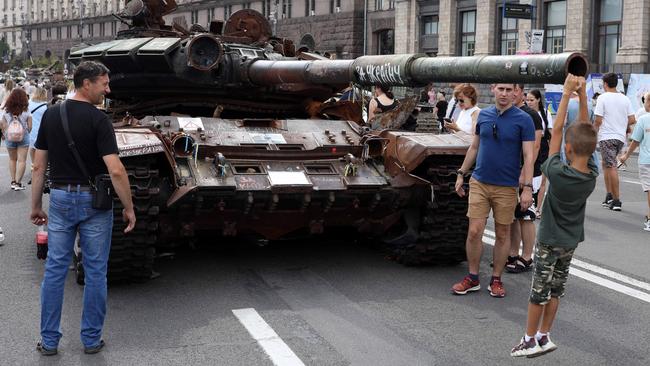
Buskers play music with crowds watching on and sometimes dancing. Hundreds of Ukrainian flags, joined by flags from other countries, flutter in the wind, representing the lives lost. Some of the flags are accompanied by photographs of lost loved ones.
Among the crowd, reactions differ according to age.
For many elders, amateur mobile video of the Embraer Legacy 600 private jet plummeting to the ground is enough to prove the death of Prighozin, who was listed as a passenger on the manifest.
One elderly Ukrainian woman, who recommenced industrial work when the invasion began, tells The Australian on Saturday she believed he’d died after watching the crash on television.
“I saw the news about the Russian anti aircraft system intercepted the plane, with other passengers and Prigozhin and his deputy, and video where the plane was falling down,” she said.
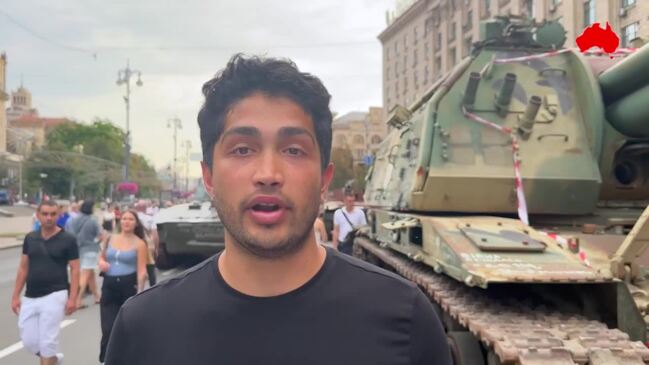
On Sunday morning in Kyiv news broke that a Russian investigative committee confirmed Prigozhin was on the flight, citing “molecular-genetic testing”.
But in the days leading up to Sunday morning’s announcement, many younger Ukrainians The Australian spoke with, including Marina Ustabasch, were sceptical.
“At first I didn’t believe it, but then when I saw lots of confirmation from different sources, especially from Russian sources, I found it was probably true,” Ms Ustabasch said.
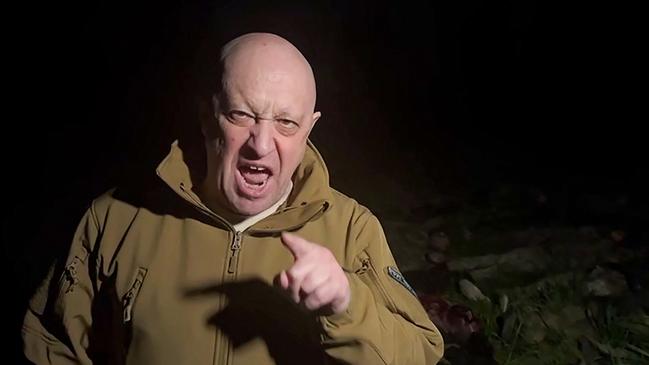
Dmytro Soldatenko, a 22-year-old studying a masters of international law in Kyiv, told The Australian on Saturday when he first heard the news that he looked for further reporting believing it could be “fake news”.
He said he would not be surprised if Prighozin reappeared “years after the war”, and that older Ukrainians were more susceptible to “random information from (social media application) Telegram”.
“For example, my parents are looking for all of these local news channels and they believe it, and I personally try to say to them that they shall verify information,” he said.
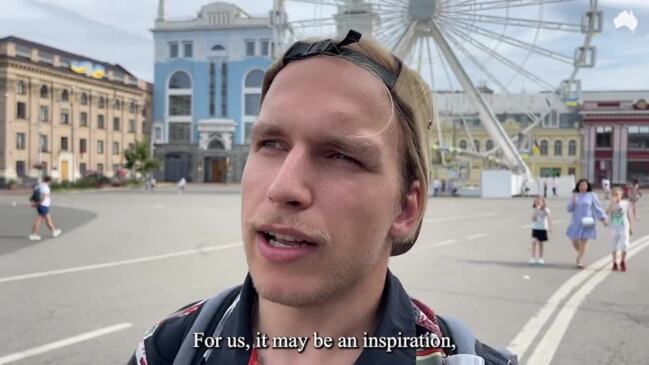
He said while the news was “an inspiration” for Ukraine, it has a far deeper impact in the discourse of Russian elites – and has a greater benefit to Ukraine than some may initially believe.
“It may undermine Putin’s authority and that‘s what matters. Our strategic goal is to divide them,” Mr Soldatenko said.
“So I believe that his attempted coup as well as his death started some irreversible processes in the Russian elites, which will ultimately lead to some beneficial results for us.
“It may make (Russian elites) fear about their future, fear Putin, not believe in him,” he said.
Following Sunday’s announcement by the investigative committee, Mr Soldatenko said Prigozhin’s death was more believable.
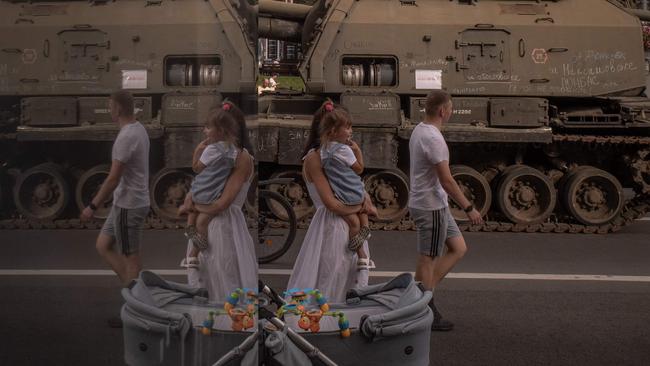
“Now, I am really certain that Prigozhin is dead,” he said. “Indeed, there is a small chance that it was all scened and investigators just faked their finding, but that sounds like a conspiracy theory.”
“Prigozhin was removed, not by some judicial process, or official process, or something like that he was just killed,” he said.
“And that shows that something changed – that they can kill their adversaries inside the country as a governmental policy.”


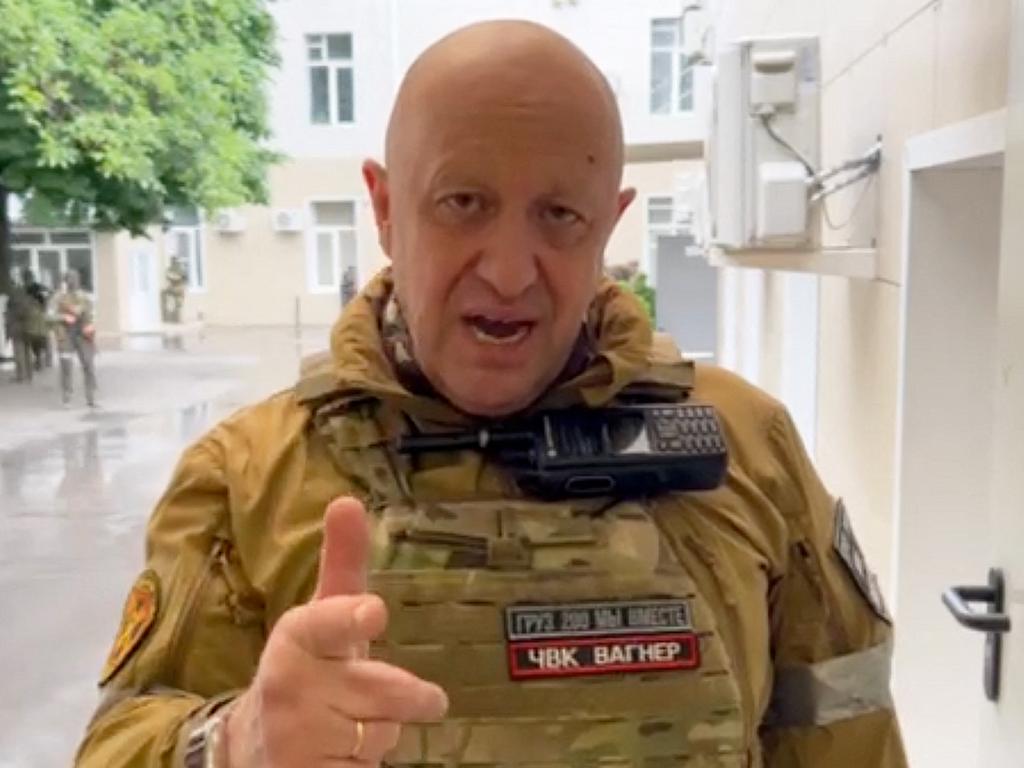
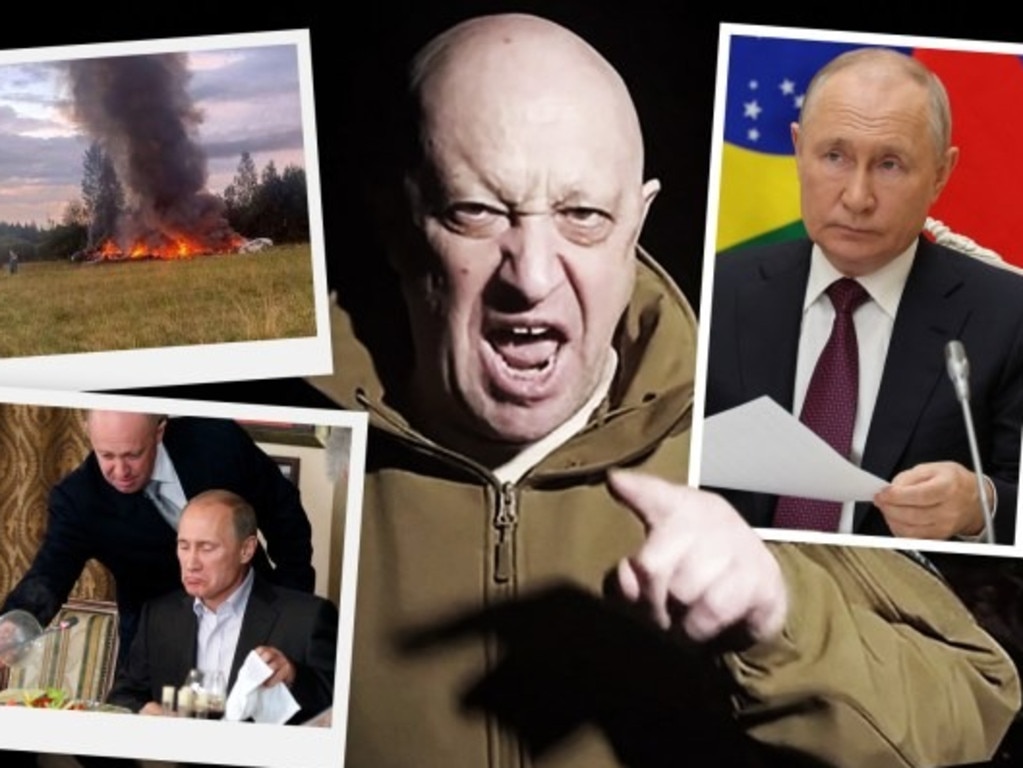
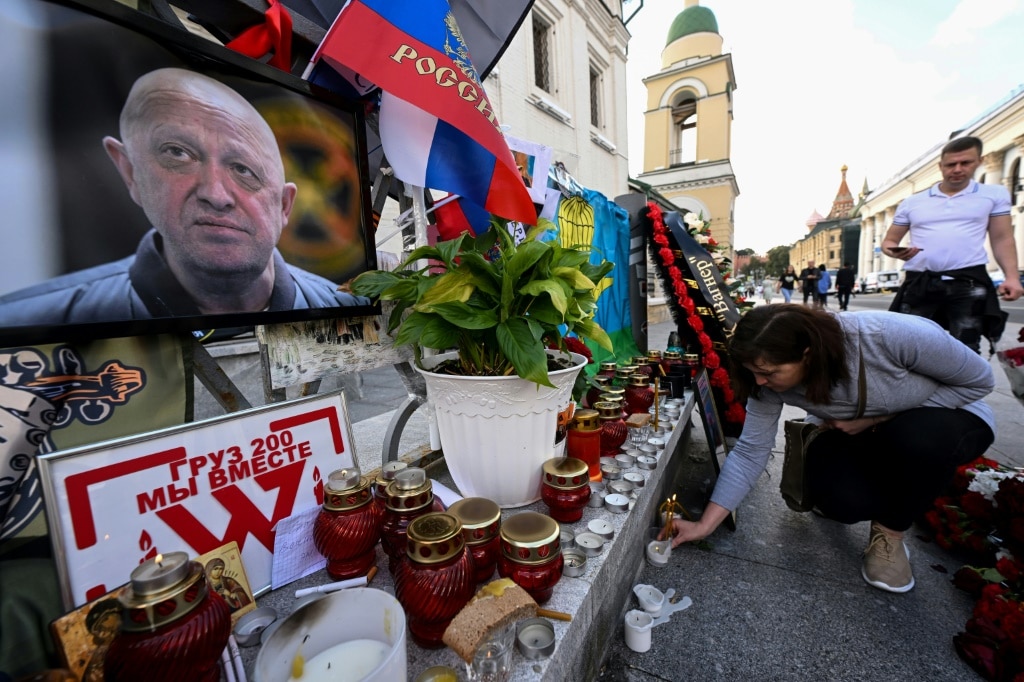
To join the conversation, please log in. Don't have an account? Register
Join the conversation, you are commenting as Logout